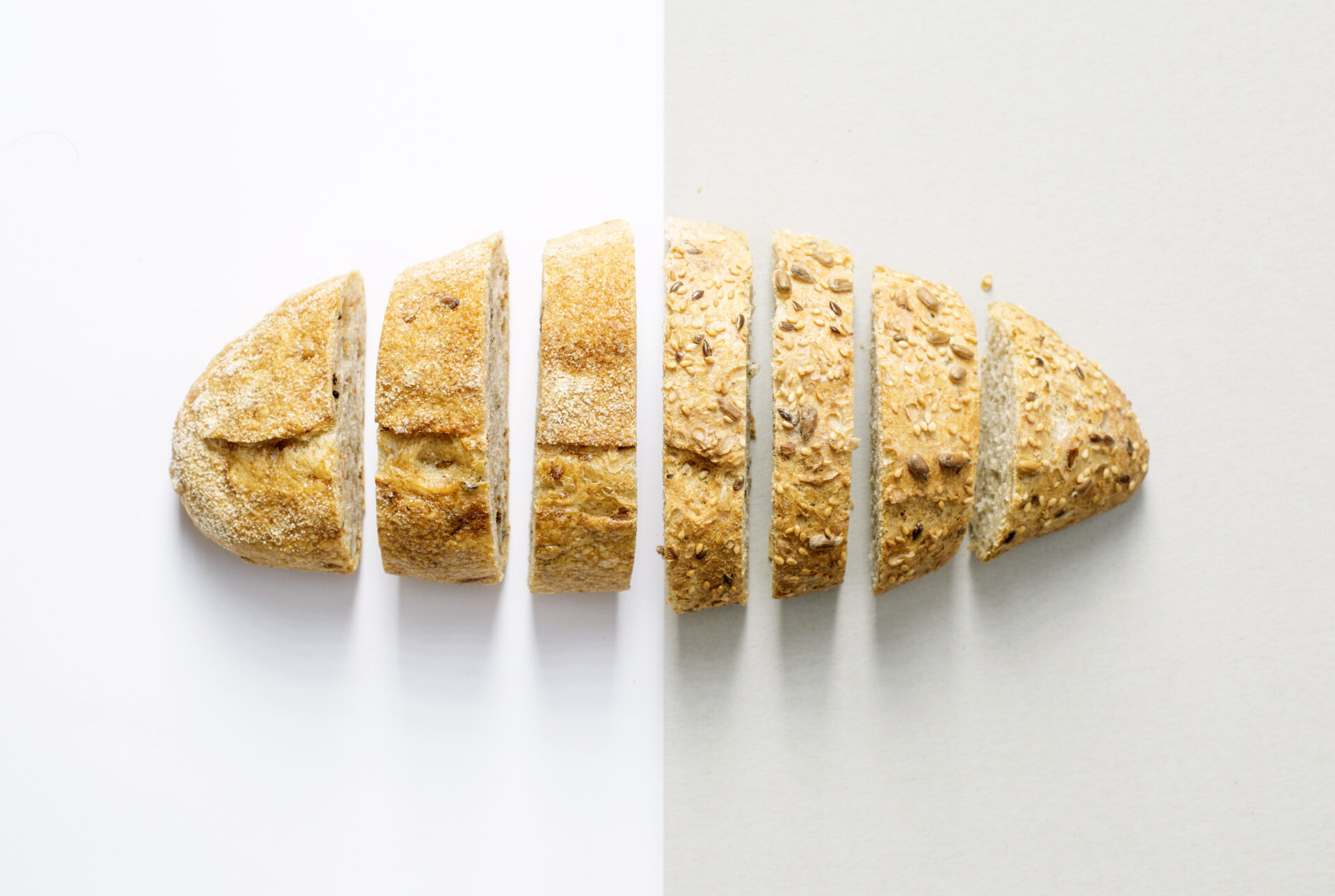A healthy diet is essential for maintaining good health and preventing chronic diseases. While many people are aware of the importance of eating a balanced diet that includes a variety of food groups, not everyone realizes that the diversity of the foods we eat is just as crucial as the quantity and quality. Eating a diverse diet is not only more enjoyable, but it also provides a wider range of nutrients, minerals, and vitamins that our body needs to function optimally. In this article, we will explore the importance of eating a diverse diet for a healthy diet and provide tips on how to incorporate more variety into your meals.
What is a diverse diet and why is it important?
A diverse diet is one that includes a variety of foods from different food groups, including fruits, vegetables, whole grains, lean proteins, and healthy fats. Eating a diverse diet is important because it provides the body with a range of essential nutrients that are necessary for optimal health and well-being.
Each food group provides a unique set of nutrients that are important for various functions in the body. For example, fruits and vegetables are high in vitamins, minerals, and fiber, which are important for maintaining a healthy digestive system, reducing the risk of chronic diseases, and supporting overall health. Whole grains are a good source of fiber, B vitamins, and minerals such as iron and zinc, which are important for energy production, brain function, and immune health.
Eating a diverse diet also helps to prevent nutrient deficiencies, which can lead to a range of health problems. For example, a lack of iron can lead to anemia, while a lack of vitamin C can result in scurvy. By eating a variety of foods from different food groups, you can ensure that your body is getting all the nutrients it needs to function properly.
In addition to providing essential nutrients, a diverse diet can also help to prevent chronic diseases such as heart disease, diabetes, and cancer. Studies have shown that eating a diet rich in fruits, vegetables, whole grains, and lean proteins can help to reduce the risk of these diseases.
Overall, a diverse diet is important for maintaining optimal health and well-being. By incorporating a variety of foods from different food groups into your diet, you can ensure that your body is getting all the nutrients it needs to function properly and reduce the risk of chronic diseases.
The benefits of a diverse diet for overall health and well-being
Eating a diverse diet has numerous benefits for overall health and well-being. Here are just a few of the ways that a diverse diet can improve your health:
1. Improved digestion and nutrient absorption
When you eat a variety of foods, your digestive system has to work harder to break down and absorb the different nutrients. This can help to improve digestion and increase nutrient absorption, which can lead to better overall health.
2. Reduced inflammation
Inflammation is a natural response to injury or infection, but chronic inflammation can lead to a range of health problems, including heart disease, diabetes, and cancer. Eating a diverse diet that includes anti-inflammatory foods such as fruits, vegetables, whole grains, and healthy fats can help to reduce inflammation in the body.
3. Increased energy levels
Eating a diverse diet can help to provide the body with the energy it needs to function properly. By including a variety of foods from different food groups in your diet, you can ensure that your body is getting all the nutrients it needs to produce energy.
4. Improved mood and mental health
Studies have shown that a diverse diet that includes fruits, vegetables, whole grains, and healthy fats can help to improve mood and reduce symptoms of depression and anxiety.
5. Reduced risk of chronic diseases
Eating a diverse diet that is rich in fruits, vegetables, whole grains, and lean proteins can help to reduce the risk of chronic diseases such as heart disease, diabetes, and cancer. By providing the body with a range of essential nutrients, a diverse diet can help to support overall health and reduce the risk of disease.
Overall, a diverse diet has numerous benefits for overall health and well-being. By incorporating a variety of foods from different food groups into your diet, you can improve digestion, reduce inflammation, increase energy levels, improve mood and mental health, and reduce the risk of chronic diseases.
How a diverse diet can help prevent chronic diseases
A diverse diet can play an important role in preventing chronic diseases such as heart disease, diabetes, and cancer. Here are some ways that a diverse diet can help to prevent these diseases:
1. Reduced inflammation
Chronic inflammation is a risk factor for a range of chronic diseases, including heart disease, diabetes, and cancer. Eating a diverse diet that includes anti-inflammatory foods such as fruits, vegetables, whole grains, and healthy fats can help to reduce inflammation in the body and reduce the risk of these diseases.
2. Improved heart health
A diverse diet that is rich in fruits, vegetables, whole grains, and lean proteins can help to improve heart health by reducing blood pressure, lowering cholesterol levels, and reducing the risk of heart disease.
3. Reduced risk of diabetes
Eating a diverse diet that includes a variety of whole grains, fruits, vegetables, and lean proteins can help to improve insulin sensitivity and reduce the risk of developing type 2 diabetes.
4. Reduced risk of cancer
A diverse diet that includes a variety of fruits, vegetables, whole grains, and lean proteins can help to reduce the risk of cancer by providing the body with a range of antioxidants, vitamins, and minerals that help to protect against cancer.
5. Improved immune function
A diverse diet that includes a variety of fruits, vegetables, whole grains, and lean proteins can help to support immune function and reduce the risk of infections and chronic diseases.
In conclusion, a diverse diet can help to prevent chronic diseases such as heart disease, diabetes, and cancer by reducing inflammation, improving heart health, reducing the risk of diabetes, reducing the risk of cancer, and improving immune function. By incorporating a variety of foods from different food groups into your diet, you can ensure that your body is getting all the essential nutrients it needs to support optimal health and reduce the risk of disease.
The role of different food groups in a diverse diet
Eating a diverse diet that includes a variety of foods from different food groups is important for optimal health and well-being. Here’s a breakdown of the role that each food group plays in a diverse diet:
Fruits and vegetables
Fruits and vegetables are an important part of a diverse diet because they are rich in vitamins, minerals, and fiber. Different colored fruits and vegetables provide different nutrients, so it’s important to eat a variety of colors. For example, red and orange fruits and vegetables are high in vitamin C, while green leafy vegetables are high in vitamin K.
Whole grains
Whole grains are an important source of fiber, B vitamins, and minerals such as iron and zinc. They provide the body with energy and help to keep you feeling full and satisfied. Examples of whole grains include brown rice, quinoa, oats, and whole wheat bread.
Lean proteins
Lean proteins such as chicken, fish, beans, and tofu are important for building and repairing tissues in the body. They are also important for supporting immune function and maintaining muscle mass.
Healthy fats
Healthy fats such as those found in nuts, seeds, avocados, and fatty fish are important for brain function, hormone production, and heart health. They also help to keep you feeling full and satisfied.
Dairy or dairy alternatives
Dairy products such as milk, yogurt, and cheese are important sources of calcium, which is important for bone health. If you are lactose intolerant or vegan, there are many dairy alternatives available that are fortified with calcium, such as almond milk and soy milk.
Sweets and treats
While sweets and treats should be consumed in moderation, they can be a part of a diverse diet. It’s important to choose sweets and treats that are made with natural ingredients and are not highly processed.
Incorporating a variety of foods from different food groups into your diet is essential for optimal health and well-being. By including fruits and vegetables, whole grains, lean proteins, healthy fats, and dairy or dairy alternatives in your diet, you can ensure that your body is getting all the essential nutrients it needs to function properly.
Tips for incorporating more diversity into your diet
Incorporating more diversity into your diet can seem overwhelming, but it doesn’t have to be. Here are some tips to help you eat a more diverse diet:
1. Try new recipes
One of the easiest ways to incorporate more diversity into your diet is to try new recipes. Look for recipes that feature ingredients you haven’t tried before or that use different spices and flavorings.
2. Experiment with different cuisines
Different cuisines often use different ingredients and flavor profiles, so trying new cuisines can be a great way to incorporate more diversity into your diet. Try cooking Thai, Indian, or Ethiopian food, for example.
3. Shop at farmers markets
Farmers markets are a great place to find fresh, seasonal produce that you may not be able to find at your local grocery store. Shopping at farmers markets can also be a fun way to try new fruits and vegetables.
4. Mix up your snacks
Instead of reaching for the same old snacks every day, try mixing it up. Choose snacks that include a variety of fruits, vegetables, whole grains, and healthy fats. For example, try dipping carrots in hummus or eating an apple with almond butter.
5. Use herbs and spices
Herbs and spices can add flavor and variety to your meals without adding extra calories or sodium. Experiment with different herbs and spices to find new flavor combinations.
Incorporating more diversity into your diet can be a fun and rewarding experience. By trying new recipes, experimenting with different cuisines, shopping at farmers markets, mixing up your snacks, and using herbs and spices, you can enjoy a more diverse and flavorful diet.
The impact of cultural and regional food traditions on diversity in diets
Cultural and regional food traditions can have a big impact on the diversity of diets. Different cultures and regions have their own unique food traditions that are often based on the climate, geography, and available resources. Here are some examples of how cultural and regional food traditions can impact the diversity of diets:
1. Mediterranean diet
The Mediterranean diet is a plant-based diet that is rich in fruits, vegetables, whole grains, and healthy fats such as olive oil and nuts. This diet is common in countries such as Greece, Italy, and Spain, and has been associated with a reduced risk of chronic diseases such as heart disease and diabetes.
2. Japanese diet
The traditional Japanese diet is rich in fish, vegetables, and fermented foods such as miso and soy sauce. This diet is low in saturated fat and has been associated with a reduced risk of heart disease and certain types of cancer.
3. Indian diet
The Indian diet is rich in spices, vegetables, legumes, and whole grains. This diet is often vegetarian and has been associated with a reduced risk of chronic diseases such as heart disease and diabetes.
4. Mexican diet
The traditional Mexican diet is rich in beans, vegetables, and whole grains such as corn and quinoa. This diet is often low in saturated fat and has been associated with a reduced risk of chronic diseases such as heart disease and diabetes.
Cultural and regional food traditions can provide a rich source of diversity in diets. By incorporating different cultural and regional foods into your diet, you can enjoy a wider variety of flavors and nutrients.
The potential drawbacks of a limited or monotonous diet
A limited or monotonous diet can have several negative impacts on your health and well-being. When you consume the same foods over and over again, you miss out on essential nutrients that are present in other foods. This can lead to nutrient deficiencies, which can cause a range of health problems.
For example, if you rely heavily on processed foods, you may be consuming high amounts of sodium, sugar, and unhealthy fats, while missing out on important vitamins, minerals, and fiber. This can increase your risk of obesity, heart disease, and type 2 diabetes.
Moreover, a monotonous diet can also affect your mental health. Eating the same foods every day can be boring and lead to food fatigue, which can make it harder to stick to a healthy diet. This can also lead to cravings for unhealthy foods, which can further derail your efforts to eat healthily.
In addition, a limited or monotonous diet can also impact your gut health. The bacteria in your gut thrive on different types of fibers and nutrients, and a lack of diversity in your diet can lead to an imbalance in your gut microbiome. This can cause digestive issues, inflammation, and a weakened immune system.
To avoid these potential drawbacks, it’s important to incorporate a variety of foods into your diet. This can help ensure that you’re getting all the essential nutrients your body needs to function properly.
The importance of variety in meeting nutrient needs
Consuming a wide range of foods is essential for meeting your body’s nutrient needs. Different foods contain different nutrients, and by eating a diverse diet, you can ensure that you’re getting all the vitamins, minerals, and other essential nutrients your body needs to function optimally.
For example, fruits and vegetables are rich in vitamins, minerals, and fiber, which are essential for maintaining good health. Whole grains provide complex carbohydrates, fiber, and essential minerals like iron and zinc. Lean protein sources like fish, poultry, and legumes provide important amino acids, which are the building blocks of proteins.
Moreover, by consuming a variety of foods, you can also reduce your risk of developing nutrient deficiencies. For instance, if you rely solely on dairy products for your calcium intake, you may miss out on other important nutrients found in other foods, like iron and vitamin C. This can lead to anemia and weakened bones.
Furthermore, consuming a variety of foods can also help you maintain a healthy weight. When you eat a diverse diet, you’re less likely to overeat or consume too many calories from any one food group. This can help prevent weight gain and reduce your risk of obesity and related diseases.
In summary, incorporating a variety of foods into your diet is essential for meeting your body’s nutrient needs, reducing your risk of nutrient deficiencies, and maintaining a healthy weight.
How to plan a diverse and balanced meal plan
Planning a diverse and balanced meal plan can seem daunting, but it doesn’t have to be. By following a few simple tips, you can create a meal plan that is both nutritious and delicious.
1. Set goals
The first step in planning a diverse and balanced meal plan is to set goals. Determine what nutrients you need to consume each day, and aim to incorporate a variety of foods that provide those nutrients. Consider your dietary restrictions and preferences as well.
2. Choose a variety of foods
When planning your meals, aim to include a variety of foods from each food group. For example, choose fruits and vegetables of different colors, whole grains, lean proteins, and healthy fats. This will help you get a wide range of nutrients and prevent boredom with your meals.
3. Plan your meals in advance
Planning your meals in advance can help you avoid making unhealthy choices when you’re hungry and pressed for time. Take some time each week to plan out your meals and snacks, and make a grocery list of the ingredients you’ll need.
4. Cook at home
Cooking at home can help you control the ingredients and portions of your meals. Try to incorporate a variety of cooking methods, such as grilling, baking, sautéing, and roasting, to keep your meals interesting.
5. Be flexible
It’s important to be flexible with your meal plan and make adjustments as needed. Don’t get too caught up in following a strict plan if it’s not working for you. Be open to trying new foods and recipes, and don’t be afraid to make substitutions.
In conclusion, planning a diverse and balanced meal plan is an important step in maintaining a healthy diet. By setting goals, choosing a variety of foods, planning your meals in advance, cooking at home, and being flexible, you can create a meal plan that is both nutritious and enjoyable.





Leave a reply